I have for years called the Southwest Airlines Companion Pass the hands-down best deal in domestic travel, but is that still true in 2021? Getting two passengers for the price of one every time you fly, whether on a paid ticket or award ticket, even when the primary passenger’s ticket is paid for with someone else’s miles, has long been a no-brainer massive value for anyone who can accept Southwest’s boarding process / lack of assigned seats, but is that still true now? Given the high anticipated demand for domestic travel in the summer of 2021, I wanted to revisit my 2020 comparison to answer the question, “Is the Southwest Companion Pass still worth it in 2021?”. The answer is yes – at least on paper. Your answer may certainly be different.
Forget value, the timing may not make any sense
The primary focus of this post is the comparative value of the Southwest Companion Pass as opposed to booking award flights on the other major US carriers. Obviously most of us are traveling exponentially less now than in previous years and the travel landscape is quite dynamic at the moment. The Southwest Companion Pass is the perfect example of something that may be a “deal” on paper, but not a deal for you. I imagine that many readers probably aren’t planning a leisure trip by plane for at least the next couple of months (neither am I). That certainly reduces the utility of the Companion Pass given that you’d be wasting months of validity on a time when you’re not planning to travel.
For most people, I think the timing on earning the Companion Pass is poor at best. I think we all hope that travel (at least domestically) will pick back up this summer. But if you don’t plan to fly until mid-way through 2021, you’re essentially wasting half a year of Companion Pass savings. I’d therefore recommend that most people hold out until the end of 2021 with the goal to earn the Companion Pass as early as possible in 2022 and hopefully get two years full of travel out of it.
We earned a Companion Pass in my household in early 2020. While we have been Companion Pass holders for many years, we haven’t used the one we earned in 2020 a single time yet and we don’t have any flights yet booked at this point. I think it’s likely that we won’t fly until late summer at best and we’ll be lucky if we get more than one trip in the nearly 2 years we’ll have had the Companion Pass. Talk about epically bad timing on that one!
On the other hand, if you are traveling and/or plan to get enough benefit from the Companion Pass to make it worth consideration, is it even worth it compared to your other award flight booking options? Assuming you’re booking for two passengers, I’d say it is.
Advantages of Southwest (diminished)
From the outset, Southwest has some advantages that make it attractive as compared to American, Delta, and United. Flexibility is one of the things I value most highly in travel plans and Southwest offers the ultimate flexibility: tickets can be cancelled up to about 10 minutes before departure for no penalty (I think the closest I’ve ever actually cut this is about 30 minutes before). If you book an award ticket, that means you can cancel up to shortly before departure and immediately get your points back and request a refund of the taxes to your credit card (though you do need to specify that you’d like a refund of the taxes rather than having them held as a credit for future travel). If you booked a cash ticket, you can similarly cancel up until just before departure and you’ll get a credit that is valid for a year from the date of booking.
That used to make Southwest really stand out because in past years you would have needed elite status with the other major carriers to get that kind of flexibility. However, COVID-19 has changed things on that front, with many airlines eliminating change and cancellation fees. You can (at least in many cases) get similar flexibility with the major carriers, so Southwest’s competitive advantage has been eroded from that perspective.
Still, one particular advantage of the Companion Pass benefit is that it works on both paid and award tickets. This means that you can add your companion for just the taxes (usually $5.60 one-way within the US, more for international destinations) whether you paid for your ticket on your credit card, you used your Rapid Rewards points, your company bought your ticket, or great aunt Suzy used her Rapid Rewards points to buy your ticket. That’s been a nice deal in two-player mode since you can even use the companion’s rapid rewards points to book a ticket for the primary traveler and then add the companion for free.
Another advantage that could be huge for those who pack heavy is that Southwest includes two free checked bags per passenger. While you might be able to get one free checked bag by having the right credit card with the other airlines, you’ll always get two with Southwest. You’ll also always get a free carry-on — there is no basic economy.
A final strength of the Companion Pass in terms of award travel has long been that it is possible to get a great deal when planning far in advance. While the major loyalty programs have traditionally charged 12,500 miles each way for a domestic economy class ticket, Southwest has long had a more revenue-based program. This has meant that I have scored tickets to fly across the country more than once for fewer than 10,000 points one way. With the Companion Pass, that is less than 5,000 points per passenger. For a transcon flight, that has long been a steal.
Pressure from the big guys
However, what was long a steal just isn’t as obvious anymore. The domestic award travel landscape has changed pretty dramatically over the past couple of years (completely separate from the COVID-19 pandemic), thanks to the following three things:
- It is possible to book United domestic awards via Turkish Miles & Smiles for 7.5K each way
- American Airlines has gone to dynamic pricing with frequent web specials from 5K each way
- Delta has continued dynamic pricing and increased the frequency of flash sales from 10K round trip
- United has also gone to dynamic pricing, with some flights available for as few as 5K miles each way.
Each of these three points comes with its caveats (Turkish can be hard to book, AA web specials are restrictive, Delta’s best prices are basic economy), but they are hard to ignore. While Southwest enthusiasts will rightly point to the fact that Southwest flights offer predictable value in terms of the number of points required as compared to the cash price (whereas dynamic pricing on the major carriers can be truly dynamic rather than always revenue-based), the fact is that there are now opportunities to book domestic awards for competitive rates on the major carriers and economy class availability can be decent on all three (though of course nearly nonexistent at peak travel times). Add in the fact that close-in travel with Southwest is likely to cost an exorbitant number of points whereas a domestic United saver flight is still the same 7,500 miles plus $5.60 through Turkish whether booked 3 months in advance or 3 days in advance and you have some argument to be made for the major carriers if you want to be able to plan or change flights close to the date of travel.
How useful you find AA’s economy web specials or the Turkish sweet spot will obviously depend on where you’re based and prefer to fly, but the bottom line is that Southwest no longer enjoys the huge advantage in terms of award cost that it once did.
Comparisons
As I said in the original version of this post in 2020, I am no computer programmer, so I’m relying on old fashioned searching one city pair at a time. However, I wanted to revisit my quick comparison to take a look at the value of the companion pass for travel for two people versus simply being diversified in terms of having points in various programs.
Again, my methodology is that I searched from five airports – my “home” airport of Albany, NY (both because this comparison is useful for me personally and because it represents a smaller market that is served by all of the major carriers), New York and Los Angeles because of the fact that they represent two major US markets that are kind of “hubs” for everyone, Chicago because it is both a major market and a hub for both Southwest and United, and Dallas as it is both a major market and a hub for both Southwest and American. I searched a random date a few months in advance (before the pandemic hit) for travel from these cities to three destinations: Orlando, San Francisco, and Omaha. I picked Orlando and San Francisco in order to have one major destination on each coast and I picked Omaha in order to have one additional destination somewhere in the middle of the country that is served by all the major carriers in order to represent domestic travel to/from a smaller or more mid-sized market.
My sample size here is admittedly tiny. I literally searched one date, I intentionally picked a weekday (since I figured I could count on the lowest saver award availability from the major programs) and I didn’t discriminate in terms of the desirability of connections or anything else. I simply wanted to see whether or not Southwest was still competitive considering dynamic pricing and the current travel landscape. My expectation as I wrote the original version of this post and once again now in 2021 was that Southwest might be better in some instances but likely not by much in those instances and that they would be behind in others.
Here are my results for one-way travel in total points for two passengers on the cheapest option with each carrier on a random weekday (examined pre-pandemic). I’ve bolded the cheapest option for two passengers in each instance.
- Albany
- To Orlando
- American: 23K
- Delta: 23K
- Southwest: 10,418
- United: 25K miles (or 15K via Turkish or 20K via LifeMiles)
- To San Francisco
- American: 25K
- Delta: 31K
- Southwest: 13,698
- United: 25K (or 15K via Turkish, 27K via LifeMiles)
- To Omaha
- American: 20K
- Delta: 27K
- Southwest: 12,900
- United: 25K (or 15K via Turkish, 20K via LifeMiles)
- To Orlando
- New York City
- To Orlando
- American: 20K
- Delta: 9K
- Southwest: 3,830
- United: 30K (or 15K via Turkish, 20K via LifeMiles)
- To San Francisco
- American: 20K
- Delta: 15K
- Southwest: 6,660
- United: 17K (or 15K via Turkish)
- To Omaha
- American: 20K
- Delta: 23,000
- Southwest: 8,619 + $11.20
- United: 25K (or 15K via Turkish or 20K via LifeMiles)
- To Orlando
- Chicago
- To Orlando
- American: 20K
- Delta: 22K
- Southwest: 9,693
- United: 25K (or 15K via Turkish or LifeMiles)
- To San Francisco
- American: 21K
- Delta: 27K
- Southwest: 12,015
- United: 25K (or 15K via Turkish)
- To Omaha
- American: 28K
- Delta: 34K
- Southwest: 5,775
- United: 15K
- To Orlando
- Dallas
- To Orlando
- American: 20K
- Delta: 18K
- Southwest: 9,693
- United: 25K or 20K via LifeMiles)
- To San Francisco
- American: 20K
- Delta: 20K
- Southwest: 9,272
- United: 24K (or 15K via Turkish)
- To Omaha
- American: 34K
- Delta: 31K
- Southwest: 8,097
- United: 25K (or 15,000 via Turkish or LifeMiles)
- To Orlando
- Los Angeles
- To Orlando
- American: 20K
- Delta: 29K
- Southwest: 13,553
- United: 25K (or 15K via Turkish)
- To San Francisco
- American: 15K
- Delta: 9K
- Southwest: 3,018
- United: 10K
- To Omaha
- American: 32K
- Delta: 30K
- Southwest: 7,023
- United: 25K (or 15 via Turkish)
- To Orlando
That result surprised me yet again. Despite the fact that Southwest ran the table the last time I looked at this, I expected that things may have flattened out. Instead, once again Southwest won every one of those searches. In many cases, the margin widened, with the major carriers charging more and Southwest charging less. I intentionally picked a midsummer day to represent a time when many people (airline executives and revenue managers included) at least hope that travel will be more common, so I knew that anticipated demand may be high enough to make “saver” availability harder to find — though I compensated for that by intentionally picking a mid-week day. I did find plenty of low-level availability with the major carriers, it just still couldn’t compete with Southwest.
What do the results of the above mean?
I’m not sure they mean a ton for everyone. Again, the sample size was pretty small. However, I still find it very intriguing that Southwest came out on top every single time yet again. That certainly makes the Southwest Companion Pass appealing on the surface.
On the other hand, potential value for specific flights is obviously only part of the story. As noted above, the timing for the Companion Pass likely does not make sense for most readers. How much you can save doesn’t matter if you aren’t flying anyway.
Further muddying the waters is the fact that many award travelers are likely drowning in points and miles tied to airline programs thanks to canceled travel. You may currently have a ton of miles tied up in airline programs that you want to use before they expire or before a program pulls the rug out from under you and devalues them overnight like Virgin Atlantic recently did. I think that if you’re flush with airline miles that can be used to book flights on any of the major carriers, you are probably better off waiting on the Companion Pass until you’ve spent down other miles.
But if you’re not in that position and you are looking at the opportunity to earn the Companion Pass and wondering whether it can save you miles, the answer remains yes (and by a comfortable margin in most cases based on my unscientific research above). With the credit cards currently offering excellent bonuses, it would once again be easy to earn a Companion Pass with two new credit cards.
Keep in mind that each member is now limited to a single personal Southwest credit card every 24 months. It is however possible to get one personal card and one business card. On the business credit card side, the terms only preclude you from the bonus if you have had that particular card in the past 24 months. This means that for those under 5/24, it should theoretically be possible to get two business cards to earn the Companion Pass as long as you apply for two different products (i.e. the Premier business and the Performance business). That said, the bonus on the Southwest Performance Business Card has been high enough to earn the pass with just the welcome bonus from that card alone — though it’ll require a lot of spend. See more detail below.
Typically, the best time to apply is from late fall into early in the new year since it gives you the opportunity to meet minimum spending requirements (and therefore earn the new cardmember bonuses) early in the year, the purpose being to accumulate the necessary points as early as possible in order to have the Companion Pass for as long as possible (if you earned the new normal requirement of 125K points in January, you’d have the pass for nearly 2 years since it is valid for the rest of the calendar year in which it is earned and the entire following year). Keep in mind that you can fill the gap via purchases, via the shopping portal, via referrals, or via points earned from flying Southwest when travel resumes (See our Southwest Companion Pass Complete Guide for more in each of the above). Note that you do need to be under 5/24 to get approved for a new Southwest card — and if you’re starting from zero, you may be better off waiting until the end of 2021 to apply so that you can earn a pass early in 2022 that will be valid until the end of 2023. Timing is everything.
For more information about the Southwest credit cards, click any of the card names below to go to our dedicated pages for those cards.
| Card Offer |
|---|
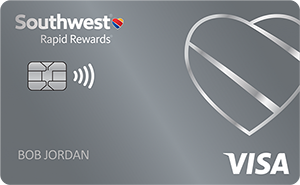 ⓘ $758 1st Yr Value EstimateClick to learn about first year value estimates 65K points Non-AffiliateThis is NOT an affiliate offer. We always present the best offer even when it means less revenue for Frequent Miler 65K points after $1K spend in the first 3 months.$69 Annual Fee After clicking through, be sure to manually select the exact Southwest card in which you are interested. This card is subject to Chase's 5/24 rule (click here for details). Information about this card has been collected independently by Frequent Miler. The issuer did not provide the details, nor is it responsible for their accuracy. FM Mini Review: This card can be great for its new cardmember bonus, but its ongoing perks are worth the annual fee only if fully used each year. |
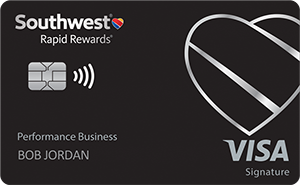 ⓘ $751 1st Yr Value EstimateClick to learn about first year value estimates 80K points ⓘAffiliateThis is an affiliate offer. Frequent Miler may earn a commission if you are approved for this offer 80K points after $5K spend within first 3 months your account is open$199 Annual Fee This card is subject to Chase's 5/24 rule (click here for details). |
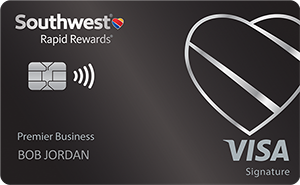 ⓘ $627 1st Yr Value EstimateClick to learn about first year value estimates 60K points ⓘAffiliateThis is an affiliate offer. Frequent Miler may earn a commission if you are approved for this offer 60K points after $3K spend within first 3 months your account is open$99 Annual Fee This card is subject to Chase's 5/24 rule (click here for details). |
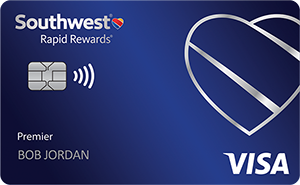 ⓘ $533 1st Yr Value EstimateClick to learn about first year value estimates 50K points ⓘFriend-ReferralThis is a friend-referral offer. A member of the Frequent Miler community may earn a referral bonus if you are approved for this offer 50K points after $1K spend in the first 3 months$99 Annual Fee This card is known to be subject to Chase's 5/24 rule. Information about this card has been collected independently by Frequent Miler. The issuer did not provide the details, nor is it responsible for their accuracy. FM Mini Review: The combination of 6,000 points plus 2 EarlyBird Checkins each year make this card a keeper for those who fly Southwest often. |
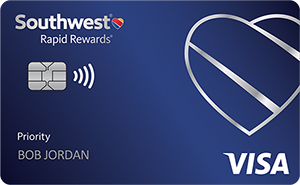 ⓘ $483 1st Yr Value EstimateClick to learn about first year value estimates 50K points ⓘAffiliateThis is an affiliate offer. Frequent Miler may earn a commission if you are approved for this offer 50K points after $1K spend in the first 3 months.$149 Annual Fee This card is known to be subject to Chase's 5/24 rule. FM Mini Review: Great for frequent Southwest flyers - this card could easily be a long-term keeper. |
Bottom line
Many of us hope that at least domestic travel will look more normal by summer of 2021, so I ran a comparison for summer 2021 travel to see how the Southwest Companion Pass stacks up against the competition. I expected that it would not be a runaway winner given that I expected summer flight pricing to be high due to anticipated demand for domestic summer travel (and high cash prices mean Southwest flights would cost more points). However, my result surprised me yet again because yet again Southwest came in well below the competition in terms of pricing for two passengers on an award ticket if you have the Southwest Companion Pass. I have been as disappointed as anyone to have had a Companion Pass collecting dust since early 2020 and I know that I’ll likely get almost zero value out of that pass given the unfortunate timing and expiration of my pass later this year, but I also know that nobody could have predicted that. The fact remains that the Companion Pass retains strong value on paper in 2021 and I will likely pursue it again in 2022 knowing that I’ll make a strong effort to make up for the travel I’ve missed once I feel comfortable returning to the sky. It won’t do me much good in 2021, but the Southwest Companion Pass is still worth it compared to the competition.


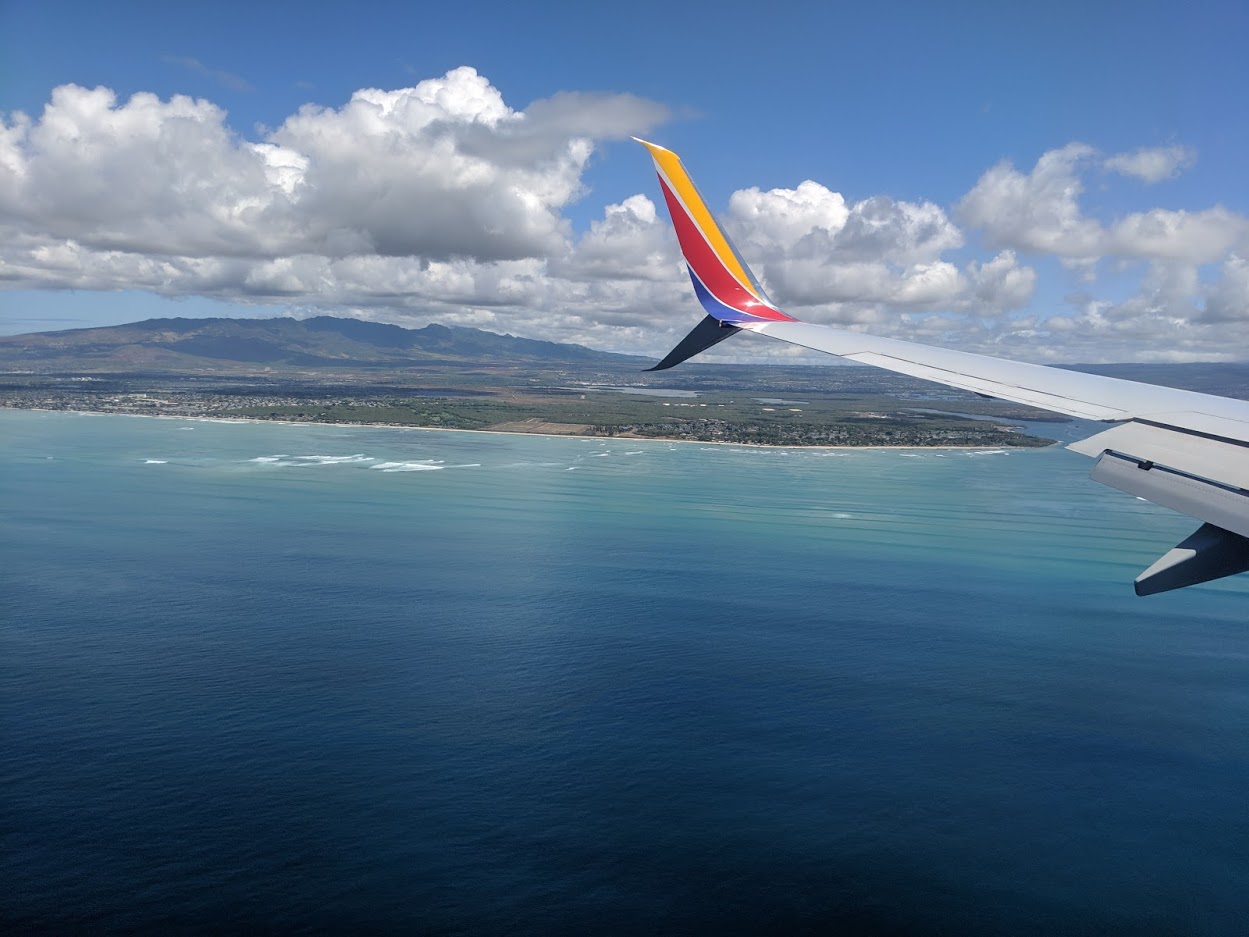
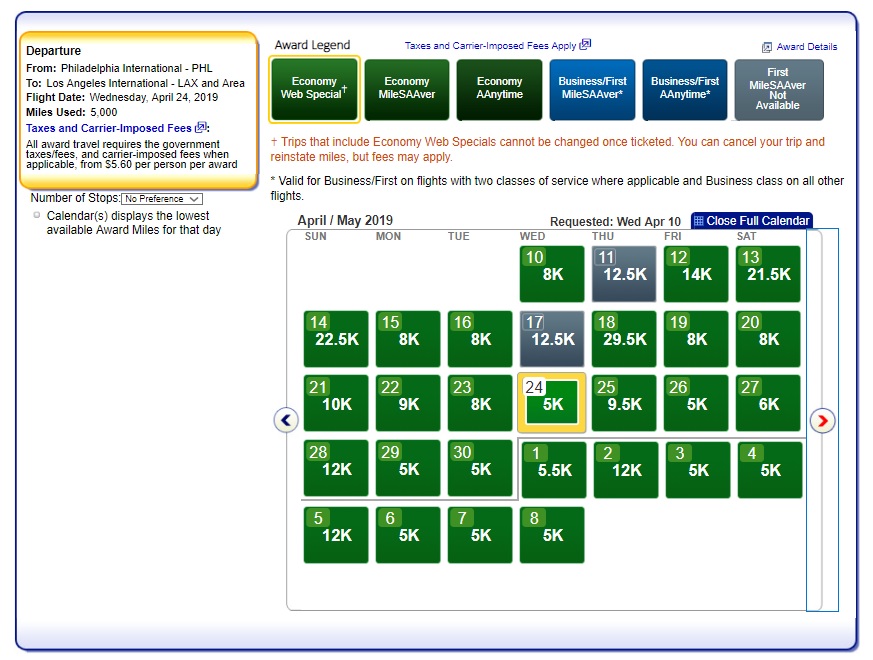
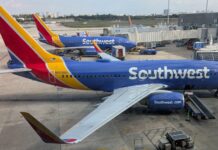


A little off subject. Does Chase SWA Premier credit card still offer 4 business select upgrades per year at the gate?
Great post, Nick. I appreciate how you evaluated the rates across both the west coast and east coast as well as smaller cities. These type of posts save me from looking it up myself. I also got the Companion Pass in early 2020, but even though I have flown Southwest, I have not used it. Being based in San Diego, the challenge I have found is the following:
1) SAN went from 30+ nonstop cities to only the CA cities and focus cities, so maybe 10 cities for the time being.
2) Connection times are not well timed or require two stops. Instead of a nonstop from SAN to RNO, I am looking at a 2 or 3+ hour connection in Vegas. Similar story when looking for a flight to PDX later this year or new service to Steamboat Springs.
3) Removal of blocking the middle seat policy. Once this policy changed my spouse was firm that we fly Delta or use miles on American for First Class, so we don’t have to sit next to anyone. With the no seat assignment, this makes Southwest too much of a variable.
Admittedly, I have cancelled 80% of my trips, but I still have been planning in hopes we can take some of them, such as ski destinations. With everyone offering refund ability, my primary reason for Southwest is gone, given the schedule from a secondary city. Hoping this changes in the second half of 2021.
I qualified for the two month companion pass and just added my wife to a January flight. Really easy to do. I’ll see if I can get us a couple of flights under our belts to experiment. I might go for it in early 2022. We’ll likely have a part-time residence in Scottsdale, AZ by then so it will come in handy.
haha, booked a r/t to Las on 12/31 for Mar with pts or $98 in cash, but now pts needed is almost double with available vaccines to some ppl
My opinion on the Companion Pass (which I’ve never had) is perpetually “Maybe next year”.
I have adopted Southwest as my airline of preference for domestic flights but so far it’s pretty rare that I fly domestically with the same family member more than once a year. Just hoping the pass lasts long enough until my wife and I are in semi-retirement and will be doing a lot more pair flying.
Keep in mind that you can change your companion 3 times per calendar year. That’s up to 6 companions over 2 years.
Maybe get three shared flights over two years (in my current flying configuration).
Ugh, this is an easy pass for me for a few years, not worth the spend and 5/24 not available, also, if I did have a slot, I wouldn’t fill it with a new SW card in these times.
My scenario may be different from others though, with all the deals out this year, I got enough points for two companion passes and my wife got the companion pass with thousands of points to spare.
if we are allowed to travel (and if we get our jobs back, still laid off) we will just use points and wait until late 2022 to maybe try again.
That makes sense.
Definitely less value to me because of Covid. Also, SW has eliminated many of the nonstop flights from my home city, so having to do more layovers certainly reduces the value.
Yeah, flight elimination would certainly impact me if I were located somewhere with many direct flights. That’s a great point. I’m located near a smaller airport, so I am pleasantly surprised when I have a nonstop option for what I need rather than disappointed about layovers. I’m sure I’d feel much differently in a larger city.
Excellent topic and treatment. I think this in-depth look very well shows the value of WN and the Companion Pass, which I agree is the best deal in domestic travel.
One thing to emphasize is the ease of booking flights on WN. Once you know the ropes it takes seconds. And if there is a seat for cash, you get it for points on the spot. 100%. The deal is done. Similarly to cancel. Mere moments. WN now has a page in your account listing the amounts you have on credit and their expiration dates, the lack of which used to be a PITA. The “low fare finder” is especially convenient to whittle down dates if the price is important.
Compare this to transferring and repeatedly searching on Turkish or UA or AA or DL and the headaches associated. Researching the rules. Waiting for deals. Phantom availability. Parsing out Basic vs. regular Economy. Luggage allowance. All that rigamarole.
Transfer from Chase UR to WN is instant, 1:1. And WN points have pretty well held value compared to some of the others.
The older I get, the more I value the time and brainpower saved.
Very good points. Elaborating on your point a bit there is a peace in knowing that you got the only deal there is to be gotten and that you don’t need to search anywhere else or second-guess how you booked it. When I book an AA flight, I have to figure out whether the best deal is AA miles, BA miles, IB miles, Qantas miles, etc. Then I have to deal with the anxiety of asking myself later if I missed something. And the frustration with knowing that I paid full price for a flight that was available as a MilesSAAver award (doh! true story – happened to me in 2019. Wasted miles!). Brainpower saved indeed.
There are other things I value about Southwest that I didn’t include here. For example, my wife is an anxious flyer (loves to travel, wishes she could teleport). The predictability of knowing that it’s a 737 every time with Southwest is very valuable for us. She won’t get on a very small plane. With Southwest, there’s no worry of a last-minute equipment swap or re-routing that’s going to cause a problem. I value that a lot, but that’s not applicable for most people. The way they’ve allowed changes without paying a fare difference many times has also been great. I also tend to find customer service much better than my experience with competitors. Again, those are subjective reasons why I like Southwest. With the post, I was aiming for more objective reasons. But I agree with your sentiments very much.
Yeah, the all-737 and the flexibility/friendliness of WN CS agents are interesting points.
There’s another few things. If a WN flight drops by even a slight amount, you can refare in seconds and grab back the difference if the savings are worth your time. Switch to another flight on any date if that one has dropped and likewise reclaim the difference. Book from your account for others (as many people as you like), refare/cancel, and the points go back in your own account 100% in an instant. Can you imagine booking for 9 people on a legacy and having to go through all that? It’s a nightmare, at least for me. WN historically has very seldom changed its schedule and completely screwed your careful plans, as opposed to the legacies.
And if you see a deal on WN, you can book it on points that instant because of the flexibility, without having to check with other people to see if it’s acceptable, in which case the deal may vanish.
Finally, nothing stops you from grabbing what looks like a decent deal on WN with points and then spending as much time as you like looking for something better elsewhere. Completely free option if you have the points, which now never expire.
All this stuff is quite valuable, even if you don’t have a CP. I like simplicity and consistency and time-saving.
With the time saved, you can get back to earning more money/points or just living your life.
I earned it as well in early 2020. Flew to Chicago in mid-March and that was it. Hopefully will use it a bit this fall.
There’s one assumption in the analysis that is also where it’s fallen apart for me over the last 5 years – you’re assuming 2 traveling together. Most of my travel is “business” (alone) or “family” (I’m bringing the entire circus with me). As my family has grown the value of the CP has dwindled, and it’s *so* much harder to even consider getting a CP for a kid who can’t have a credit card.
Your 10,000 points for two tickets example becomes 50,000 points for 6 tickets or even 70,000 points for 8 tickets (if the in-laws join us to help wrangle the kiddos).
It’s funny Covid didn’t really impact the CP value (or catch me off-guard) nearly as much as family growth has.
It’s definitely true that a discussion of the Companion Pass pertains to people who fly with a companion. The title question probably makes it obvious that the answer is “no” if you primarily travel alone.
In terms of family travel, I’d argue that it is even more valuable in your situation. Finding award seats at any sort of saver-ish level for 8 passengers would be nearly impossible. But even if you can, in many cases you’ll still come out well ahead. Take Dallas to Omaha as an example. Southwest will charge about 8K per customer, so that’s 56K total assuming you’re paying for 7 passengers (and getting the eighth for free via Companion Pass). Note that in reality this will be different as I bet you’ll pay more than 8K for at least some of those passengers as the fare bucket changes, but that type of change will affect the other airlines also. Eight passengers on American would cost you 136K, it would be 124K on Delta, or 100K United miles. If there are 8 saver-level seats available to Turkish, it would only cost 60K Turkish miles — but you’re still ahead with a single Companion Pass.
Once my younger son is 2 years old, I’ll likely focus on getting two companion passes.
But very true that family growth costs you a lot more in a lot of ways. It definitely makes planning award travel a lot different.
With one pass, travel for 2 is a 50% savings, but travel for 6 (my family size) is only a 16% savings. It looks like Southwest was much cheaper than the other airlines for individual tickets in many of the examples.
The Southwest price is 8K per customer. That means that if you have the Companion Pass, you pay 8K for two customers (and then 8K per passenger beyond that presumably, though at some number of sold seats the airline will obviously increase that).
In other words, in each of the cases in the post the Southwest price is the cost for 1 passenger (since that’s the same as the cost for 2 passengers with the Companion Pass), whereas the cost for 2 passengers doubles the single passenger price on other airlines. To find the price per passenger, divide the American, Delta, or United airline totals by 2.
In all cases except Chicago to San Francisco, Los Angeles to Orlando, and Albany to Omaha, the Southwest price for 1 passenger was cheaper than all options except Turkish Miles & Smiles or LifeMiles in an instance or two (and in the case of Albany to Omaha, Southwest was 12,900 for one passenger versus 12,500 via United). Even in those few cases, Southwest was very close to the best price.
In other words, in the vast majority of my test cases, Southwest was indeed cheaper than the other airlines for individual tickets. Even assuming your theoretical 16% savings, that’s a fairly significant difference over multiple passengers like that.
Sorry Nick I misunderstood, somehow thinking the Southwest prices listed were the average price per person with the pass, rather than the price per couple as you explicitly stated. The very low Southwest price per ticket threw me off. I realized and tried to edit my comment but you’d already responded to the original version.
To elaborate on Eric’s point the “discount” from a CP is dramatically smaller as the family increases and I think you’re conflating the value of “Southwest” with the value of the CP. If it fell out of the sky then sure it’s great – but there’s an opportunity cost and the math doesn’t only change on airfare with kids. Example:
5 years ago I rent a room and hope for an upgrade + Club to impress my wife and add a sense of “luxury”. Today a suite upgrade can be the difference between sleep or no sleep, spousal debate, and critically – renting one room or two. I know it’s cool to say “I got a $1000 room for free so I’m +$1000” but let’s bring talk reality – My minimum for a decent night is now 2 adjoining rooms. A suite upgrade eliminates that second room and is immediately a 100% “discount” (not even including $ savings from club/breakfast/etc). I’d argue the above is mostly irrelevant until you get to 3 kids.
Back to airlines, Ok set aside the limited SW destinations and let’s agree they’re the best “value”. Pre-kids, CP enabled 50k RR to stretch from 5 Round Trips (for both of us) to 10. *Aaaand* my wife could join me on business trips *for free*. Today, 50k RR is exactly 1 Round Trip with CP and my wife joining me for business is entirely eliminated. That’s a 90% decrease in value for “family trips” and a 100% decrease for business trips.
Now we’re on that family trip, say 10 days –> Would you rather have put that legwork into Hyatt and save (let’s be wildly conservative) $100 x 10 = $1,000 or kill yourself getting a CP (or burn a 5/24 slot that could have been used for a $1000 UR Bonus) and save $200 on that 6th ticket? Frequent travel, minimal travel – no scenario plays in CP’s favor vs. pre-kids.
I haven’t even gotten into all the other ways to get free airfare (Amex Card Travel Credits etc) that further dilute the value of the CP and barely touched the opportunity cost of chasing UR and/or MR (which increase in value relative to the CP as the family grows). I don’t mean to sound condescending, but I think you might kind-of have to be neck-deep in a family of 6 before you really understand.
One last note – the “2 free bags”. I’d argue that’s largely a perk of Southwest (not the CP) but regardless – 3 kids = 3 free “carseat bags” in addition to checked bags. Really you could pack 4 kids in one suitcase and use the other 3 for yourself, but those *additional* carseat bags are LARGE and can fit a lot more than a carseat…let’s just say as long as you have 1 free bag check/passenger on the airline you’re using (which is simple) I’m comfortable dismissing the “2 free checked bags” entirely when traveling with young children 🙂
You make some good points, but what I don’t understand is why you would not want to get that single free $200 ticket and would rather pay for that passenger plus more miles for the other seven? If you’re going to fly Southwest anyway (because in the vast majority of cases their awards were the best deal), why wouldn’t one of the passengers being free be valuable to you? You’re unlikely to even get award seats for 4 or 6 or 8 people on most airlines without paying astronomical numbers of miles, so your best option for 4+ passengers is likely to be Southwest to begin with. Is it not worth getting that free passenger? I suppose if you’re only flying once a year, maybe it’s not worth the effort — but then, if you’re only flying once a year, the CP doesn’t make sense to begin with.
I think you’re assuming that just because the CP is less valuable means I’m rejecting Southwest in its entirety. It’s the CP specifically that is of less value.
Next comes the $200 ticket (which honestly, is really $100 R/T these days with any effort right?). My point is the tradeoff in effort to chase that CP vs chasing something else instead (hotel status and points, UR for use against multiple, or any, airlines or even “pay yourself back”, MR, other forms of travel) is greatly diminished.
Put differently – why would you save $200 on airfare for each trip when you could have applied the same amount of effort and saved $1,000 on the hotel stay for those trips instead?
For me, the math changed dramatically as our kid count has grown so it makes more financial sense to put my efforts into greater cost savings elsewhere vs. chasing a CP. I’m not saying it’s worthless, just greatly diminished in value against other places I can put my time and efforts.
Not to mention the extreme increase in value that can be gained from chasing “other options” with both Chase and Amex dramatically increasing offers, bonuses, and targeted spend rates. I literally don’t have time to get to more than 2/3 of the opportunities I’m drooling over right now – and the payoff of those 2/3 all dramatically outweigh the value of the CP. Especially with my wife no longer joining me for free on business trips it’s not worthless, just worth less 🙂
Interesting observation Jeff about how having a large family makes hotel suite upgrades relatively more valuable than free flights. I’d agree, if the upgraded suite sleeps more people and can reduce the number of rooms booked. The caveat is that the the upgrade has to be confirmed at the time of booking. Showing up at the desk with more children than reserved beds is not worth the risk (with my wife anyway).
I call ahead and try to have multiple options. 80% of the time it works out, 20% I have to get that extra room. The net is still a bigger savings than the one free ticket though 🙂
Great article, and totally applicable to our family as well. My wife got the companion pass in early 2020 (Feb?) and despite numerous planned reservations last year, we ended up cancelling every one and never using it. I too would imagine not needing it until late summer at best, which means we’ll end up getting a few months use out of it. I know Southwest extended companion passes for one year that expired at the end of last year – I wonder as a one-time courtesy if they would consider extending those that run out this year, if the user had held for all of last year but could never use it
If they extend it, I think it’s doubtful that it will be because we held it last year and couldn’t use it. You have to think of it from the perspective of what the Companion Pass is meant to be. It’s a carrot that is meant to be a way to incentivize people to pay to fly Southwest all year long. Assuming a customer puts in the miles over the course of an entire year, they get a free companion the next year. That is to say that traditionally, someone who knows nothing about credit cards likely wouldn’t actually earn the pass until November or December and the benefit is that they get a free companion the next calendar year. So any changes / extensions are likely to be made from a standpoint of what is fair to that Southwest loyalist who spent all year flying with the airline rather than making a change to appease the folks who figured out how to game the credit card system to get almost two years out of what is really meant to be like a ~1 year incentive.
However, given that travel hasn’t really recovered at all and likely won’t over the coming few months, I think there is a non-zero chance that they will extend companion passes that are set to expire this year based on the fact that we “haven’t been able to” use it this year (irrespective of the ability to use it last year because it really wasn’t designed to be a “last year” benefit if you earned it last year). That’s still kind of messy though — what do you do about the people whose pass was due to expire 12/30/20 who have been extended to 6/30/21? Extend that to 12/31 and then extend 12/31 people to 6/20/22? Then what if travel doesn’t really recover by the end of 2021? It’s not easy to figure out.
Again, I think there’s a chance they get extended, but if they do it won’t be because people earned a pass last year that they couldn’t use last year, it’ll be because they earned a pass last year that they can’t use this year. Hope that makes sense. In the end, it’s a matter of semantics I think, but I note all this to make it clear that I don’t think people like you and I got a raw deal from the perspective of the airline since they didn’t design this thing to convince us to get credit cards early in the year but rather to convince people to fly them all year long.
I’m in the same boat as both of you. My wife also got the pass in Feb 2020 and we canceled all our 2020 plans and 2021 is a long shot right now, maybe in the fall but who knows.
“I wonder as a one-time courtesy if they would consider extending those that run out this year, if the user had held for all of last year but could never use it”
Tim, I hear you … qualified Feb 2020, but was only able to use mine once …